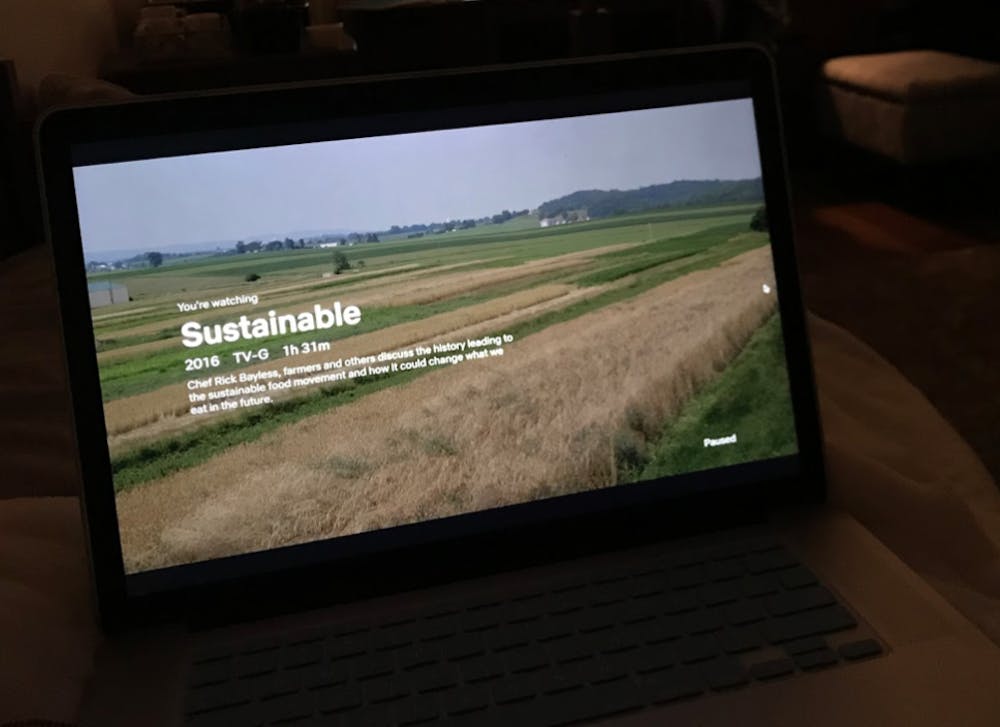By: Caroline Roethlisberger
It’s taken a few weeks, but I think I can say I’ve finally gotten back into the groove of school life after J-term. My weeks are busy with meetings and classes, and my weekends are booked with study time and preparation for my week. I have, however, had a few moments to breathe, relax and enjoy myself. I try to spend one night a week on “self-care”- hanging out in my room, movie watching, nail painting, cleaning and organizing. I enjoy browsing my Netflix options for sustainability and food-related documentaries. Recently, I watched “Sustainable”, a documentary that tells the story of a group of Illinois farmers that practice sustainable farming techniques and sell their produce to Chicago restaurants and businesses. It highlighted agriculture as the second greatest contributor to climate change. When I hear climate change, I think of air pollution and deforestation– things that I can see. I don’t, however, consider the growing of food as a source of harm for the earth. As I’m driving through the soy and corn fields into Oxford, I see plants, and I automatically assume that growing plants are a sign of a healthy, functioning ecosystem and Earth. The documentary uncovered the hidden problems with the agricultural system. It’s fueled by greedy capitalism and a desire for profit. These short-term financially motivated goals fail to consider the long-term consequences for the good of the planet. Large-scale farms support an industry that values quantity over quality- not just of the food, but of the soil and environment that it is grown. It is important to consider what we want to get from our food. I know that I want healthy, nutrient-rich food that will contribute my well-being as well as the Earth’s. Labels on boxes and produce containers in grocery stores advertise the “health” of the food. This usually focuses on what it lacks– GMO's, added sugar, non-fat, full-fat, sodium etc. But it doesn’t focus on what is actually in the food, which is arguably the most important aspect of what we put into our bodies.So how do we pursue a more sustainable diet that will contribute to a healthy body and healthy planet? The answer comes from the source of our food- the farms where it is produced, not the factories where it is processed. In an ideal world, we wouldn't need our food to be processed, we could get our groceries from our local community, reducing our environmental footprint and supporting local business. If you’d like to learn more about sustainable farming and food growth, I encourage you to watch “Sustainable” on Netflix. It’s about an hour and a half- perfect for a movie night with friends or a night in by yourself on your couch. I expected it to be a depressing story about the current state of the Earth, but it was actually quite uplifting. There is hope for our future, and it’s not found in new technology and innovation. It’s based on a process we already know how to do.Photo by Caroline Roethlisberger

